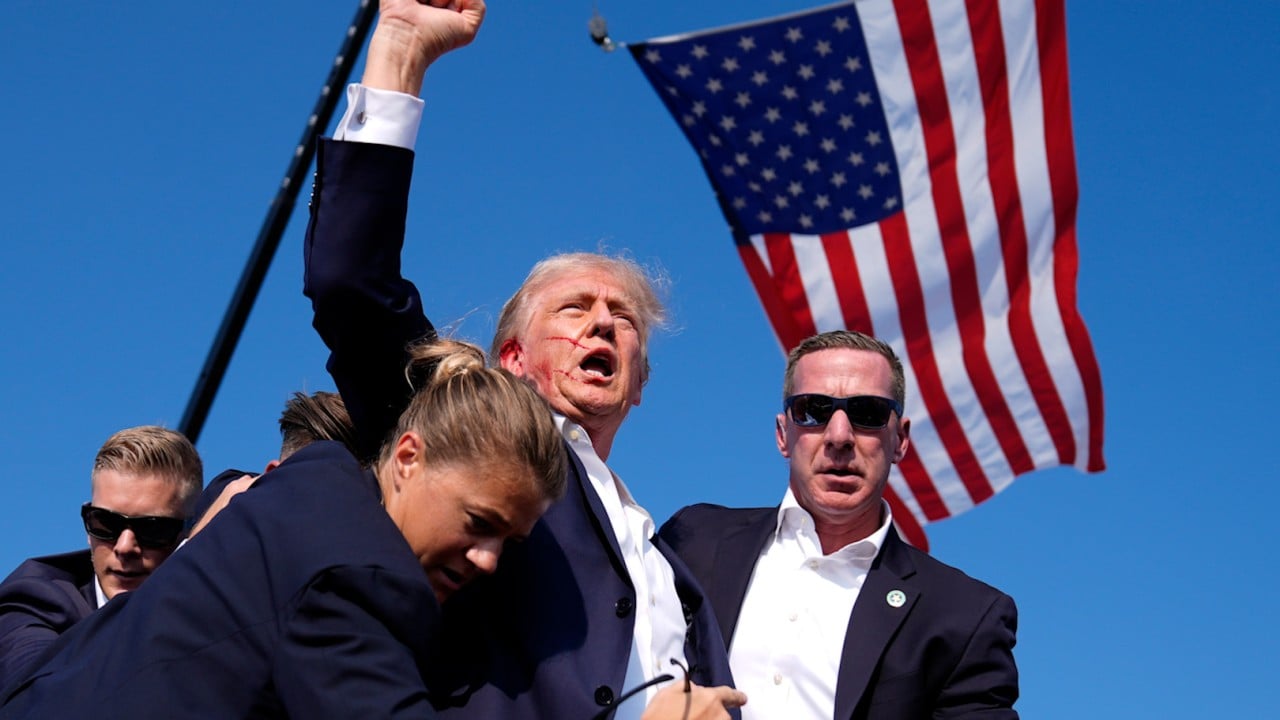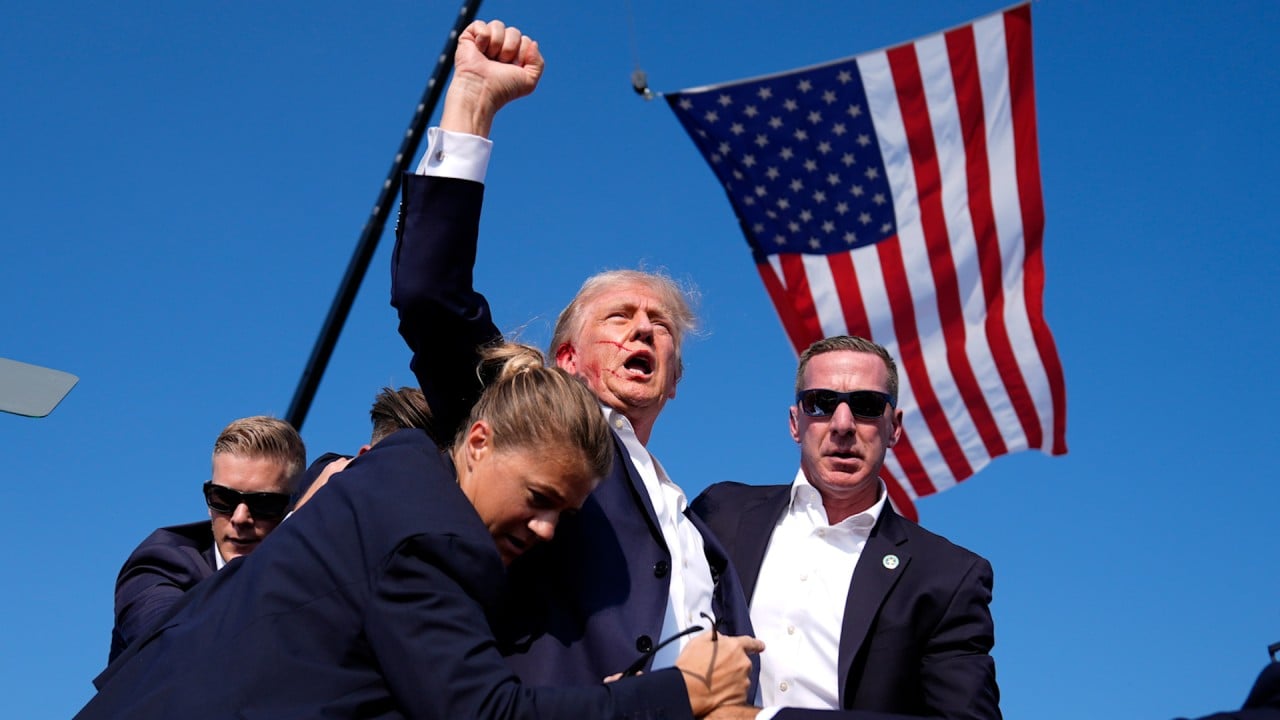Not long before their respective nominations, the campaigns of both US President Joe Biden and former president Donald Trump have been dealt a blow. Biden’s debate performance earlier this month has led to weeks of heightened attention on him amid speculation Democrats will try to replace him, with the intrigue dominating headlines until the attempted assassination of Trump reset the news cycle.
So far, the consensus appears to be that this will at least buy Biden a few days of reprieve, potentially enough to short-circuit attempts to replace him. However, this comes at the cost of a general election campaign that already appears like an uphill struggle for Democrats.
The danger for the United States, even before this assassination attempt, is that its political future might look like South Korea’s, where ex-presidents have ended up in prison after their term ends. Trump is a convicted felon who has promised retribution for his political opponent. In the aftermath of the shooting, the potential for a much darker future has emerged.
Much of the national discourse has turned towards lowering the political temperature and taking a step back from calling the upcoming election a fight of good versus evil, a framing that could be seen as encouraging more violence. Given that it appears Democrats view the election of Trump as an existential threat, such a taboo would be to Trump’s advantage.
Despite all the attention paid to the rematch between Biden and Trump, there is much more to November’s election. The overall situation for Democrats actually isn’t as dire as it might appear. Many Democratic Senate and House candidates are running ahead of Biden.
Given that the presidency only represents one of the three branches of the US federal government, the attention paid to the office is disproportionate. Such a heightened focus is likely to increase political tensions by making everything appear to depend on just one position.
The issue of an increasingly powerful presidency is one academics and pundits have raised for many years. The founding fathers of the country would be spinning in their graves if they saw the current state of affairs. After all, the US was founded in a rebellion against a monarchy viewed as exercising arbitrary power. A presidency that governs primarily through the use of executive orders might be little better in their eyes.
A major problem with political systems such as absolute monarchies which revolve around a single person is that any fluke incident or defect with that individual can produce broader political ramifications. Democracy is designed to be a system that avoids this problem by allowing the best candidate to lead through the will of the people, but US democracy appears to be struggling to produce good candidates.
However, if the other branches of government were to receive more attention – in particular the legislative branch, which should reclaim its influential role in drafting laws, approving political appointments and signing off on the national budget – it would reduce the political fallout from random events that befall the president. That in turn would help make targeted violence against the president less likely and lower the possibility of an unpredictable yet highly disruptive event.
Placing such a heavy focus on two elderly individuals is too risky and simply asking for accidents to happen. Putting more emphasis on the other branches of the US government will by no means be an answer to all the country’s problems, but lowering the political temperature in the run-up to November’s election is still necessary.
The office of the US presidency was relatively weak for much of the 19th century, with many presidents during that era failing to head off largely foreseeable bloodshed. The issue of slavery continued to tear the nation apart even after Abraham Lincoln was elected president.
Trying to reduce the power of the US presidency is a “chicken or the egg” problem. Is the office’s power the result of actions taken to expand what the president can do, other government bodies ceding their power to the executive or the amount of attention the world pays to the presidency? There appears to be no consensus on the matter, so trying to restrain the president’s power will inevitably be complicated.
The recent US Supreme Court ruling curtailing the power of federal agencies to interpret the laws they administer has been criticised as making governance more difficult and giving too much power to the judiciary. However, its taking power away from the executive branch could be seen in a positive light as well. There can and should be more to the US government than the president.
Unfortunately, the Supreme Court’s ruling that presidents are immune from prosecution for actions taken in an official capacity – while perhaps well-intentioned to prevent US politics from looking more like South Korea’s – cuts against its other rulings by returning the spotlight to the presidency.
In a global context, a weaker presidency would mean a greater role for US allies as they build their own capacity instead of relying on the US security umbrella. This would be in line with Washington’s calls for allies to share more of the load but also mean they could have more leeway to pursue strategic priorities not necessarily in line with those of the US.
A wise US president would recognise this as just what the country needs to get its house in order. The best outcome for the world would be if no one cared who sat in the Oval Office next year.
Jersey Lee is an associate at the Beijing Club for International Dialogue




